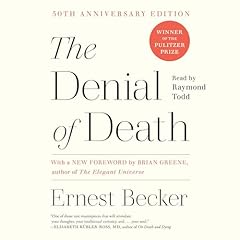
The Mosquito
A Human History of Our Deadliest Predator
No se pudo agregar al carrito
Solo puedes tener X títulos en el carrito para realizar el pago.
Add to Cart failed.
Por favor prueba de nuevo más tarde
Error al Agregar a Lista de Deseos.
Por favor prueba de nuevo más tarde
Error al eliminar de la lista de deseos.
Por favor prueba de nuevo más tarde
Error al añadir a tu biblioteca
Por favor intenta de nuevo
Error al seguir el podcast
Intenta nuevamente
Error al dejar de seguir el podcast
Intenta nuevamente
 Exclusivo para miembros Prime: ¿Nuevo en Audible? Obtén 2 audiolibros gratis con tu prueba.
Exclusivo para miembros Prime: ¿Nuevo en Audible? Obtén 2 audiolibros gratis con tu prueba.
Elige 1 audiolibro al mes de nuestra inigualable colección.
Acceso ilimitado a nuestro catálogo de más de 150,000 audiolibros y podcasts.
Accede a ofertas y descuentos exclusivos.
Premium Plus se renueva automáticamente por $14.95 al mes después de 30 días. Cancela en cualquier momento.
Compra ahora por $24.75
-
Narrado por:
-
Mark Deakins
*An international bestseller.*
Finalist for the Lane Anderson Award
Finalist for the RBC Taylor Award
“Hugely impressive, a major work.”—NPR
A pioneering and groundbreaking work of narrative nonfiction that offers a dramatic new perspective on the history of humankind, showing how through millennia, the mosquito has been the single most powerful force in determining humanity’s fate
Why was gin and tonic the cocktail of choice for British colonists in India and Africa? What does Starbucks have to thank for its global domination? What has protected the lives of popes for millennia? Why did Scotland surrender its sovereignty to England? What was George Washington's secret weapon during the American Revolution?
The answer to all these questions, and many more, is the mosquito.
Across our planet since the dawn of humankind, this nefarious pest, roughly the size and weight of a grape seed, has been at the frontlines of history as the grim reaper, the harvester of human populations, and the ultimate agent of historical change. As the mosquito transformed the landscapes of civilization, humans were unwittingly required to respond to its piercing impact and universal projection of power.
The mosquito has determined the fates of empires and nations, razed and crippled economies, and decided the outcome of pivotal wars, killing nearly half of humanity along the way. She (only females bite) has dispatched an estimated 52 billion people from a total of 108 billion throughout our relatively brief existence. As the greatest purveyor of extermination we have ever known, she has played a greater role in shaping our human story than any other living thing with which we share our global village.
Imagine for a moment a world without deadly mosquitoes, or any mosquitoes, for that matter? Our history and the world we know, or think we know, would be completely unrecognizable.
Driven by surprising insights and fast-paced storytelling, The Mosquito is the extraordinary untold story of the mosquito’s reign through human history and her indelible impact on our modern world order.
Los oyentes también disfrutaron:




















Las personas que vieron esto también vieron:


















Better take note
Se ha producido un error. Vuelve a intentarlo dentro de unos minutos.
Great book!!!
Se ha producido un error. Vuelve a intentarlo dentro de unos minutos.
Each chapter is designated to a period in time surrounding a specific culture or leader. Technically there is nothing wrong with this, but each chapter ends up being a series or random facts about famous world leaders and how their wars were won with mosquitoes. Seriously, there are at least 2 chapters about the mosquitoes in the swamps around Rome, with the mosquito playing the same role. Both chapters could have been combined into a chapter about that region of the Earth and mosquitoes in it.
Seriously, why did I need to know about King Author’s horse? Why did I need to know about origins of Han’s name and his offspring? Why did I need to hear about Columbus motives for sailing and the motives of the Spanish court to supply the funds? Nearly 75% of each chapter is a history lesson containing relatively well known history trivia, none of which relates to mosquitoes.
To be clear, all of these eras and geographical regions are relevant. There is information in each chapter that is good, but this book could be at least half as long if it were told through the lens of the mosquito rather than the lens of world leaders and their desire for conquest.
How about 1 chapter, JUST ONE, on how mosquitoes foiled the plans of famous world leaders by sickening their armies. Then 1 on how marshes acted in favor of a city by defending it. Then 1 on unintended consequences of introducing mosquitoes and their diseases to new worlds. The 1 on medical break throughs related to mosquitoes. The 1 on the biology of mosquitoes. Then 1 on the diseases carried by mosquitoes.
Notice how this list contains different concepts related to the mosquito that impacts more than just the geopolitical arm of human history. That would be interesting. Therefore if you want to skip this book, just pick up a world history textbook and insert “and they were weakened by the disease carried by mosquitoes” after reading about EVERY civilization that lost a war. LITERALLY ALL OF THEM!!!!
Ok... we get it!
Se ha producido un error. Vuelve a intentarlo dentro de unos minutos.
Great narrator
Se ha producido un error. Vuelve a intentarlo dentro de unos minutos.
A lot of history with mosquitoes causing illness and death throughout
Se ha producido un error. Vuelve a intentarlo dentro de unos minutos.


